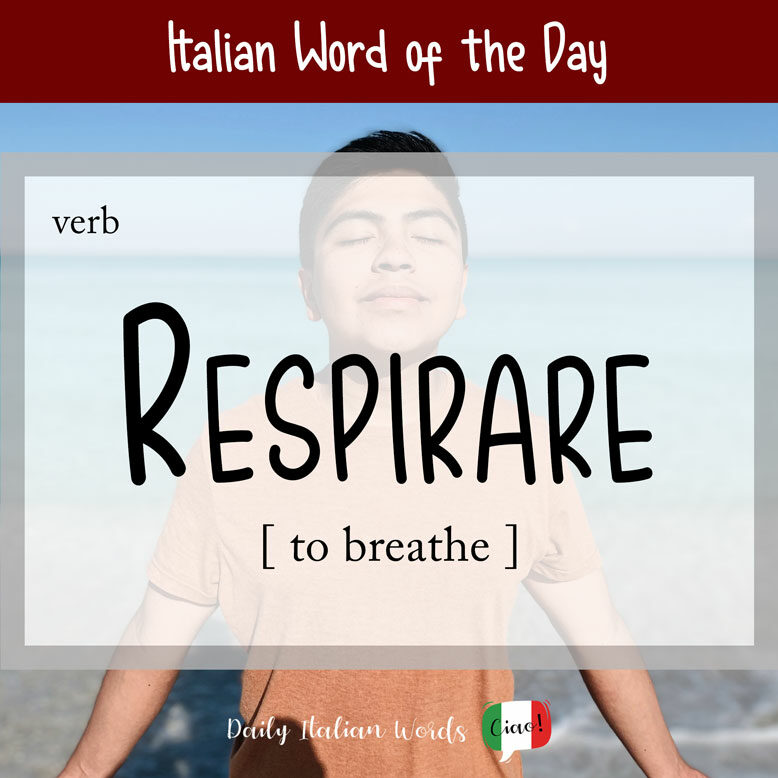The Italian equivalent of the verb to breathe in English is respirare. It shares the same origin as the verb to respire, the less used synonym of to breathe.

Respirare is an -ARE verb that is conjugated in the following way in the present tense:
- io respiro (I breathe)
- tu respiri (you breathe, singular informal)
- lui/lei respira (he/she breathes)
- noi respiriamo (we breathe)
- voi respirate (you breathe, plural)
- loro respirano (they breathe)
Faccio fatica a respirare quando corro.
I find it hard to breathe when I’m running.

The way you’d say breathe in and breathe out in Italian is with the verbs inspirare (to inhale) and espirare (to exhale).
Chiudi gli occhi, inspira, e poi espira lentamente.
Close your eyes, breathe in, and then breathe out slowly.
Aspirare is another way of saying to inhale but unlike inspirare, it is always followed by the object being breathed in, such as air, smells or smoke.
Ho preso un fiore, l’ho avvicinato al naso e ne ho aspirato il profumo.
I picked a flower, brought it to my nose and breathed in its scent.

The antonym of aspirare is the verb esalare (to exhale). It too must also be followed by an object of some sort but when talking about human beings, it is almost always used in a figurative sense (e.g. esalare l’ultimo respiro = to draw one’s last breath, to die).
One final verb that means to inhale is inalare, but it is almost always used in a medicinal sense, or when talking about gaseous substances.
From respirare we get the noun respiro which means breath or breather (as in a break or rest) depending on the context. It is frequently paired with the following verbs:
- fare un respiro = to take a breath
- togliere il respiro = to take one’s breath away
- trattenere il respiro = to hold one’s breath
- mancare il respiro = to be out of breath
A very close synonym of respiro is fiato. Although they are often interchangeable, the former refers more to the actual act of respiration, whereas the latter specifically refers to the air that escapes from the mouth and nose during the respiratory act. What’s more, fiato tends to be used far more in figurative expressions. Below are a few common example phrases where fiato would be used instead of respiro:
- prendere fiato = to take a breath
- riprendere fiato = catch one’s breath
- risparmiare il fiato = to save one’s breath
- sprecare il fiato = to waste one’s breath
- mozzare il fiato = to take one’s breath away

Heather Broster is a graduate with honours in linguistics from the University of Western Ontario. She is an aspiring polyglot, proficient in English and Italian, as well as Japanese, Welsh, and French to varying degrees of fluency. Originally from Toronto, Heather has resided in various countries, notably Italy for a period of six years. Her primary focus lies in the fields of language acquisition, education, and bilingual instruction.


